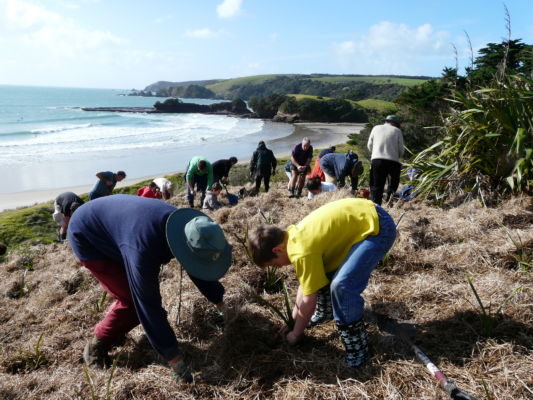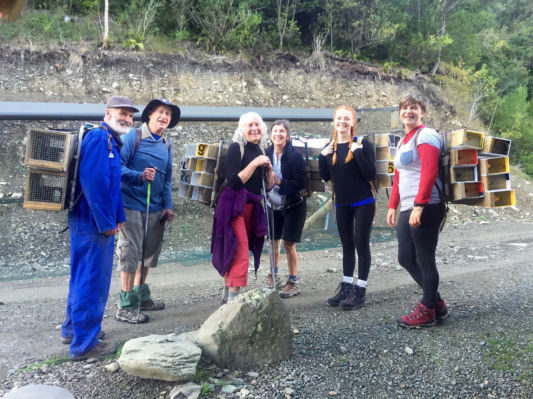“Nearly 2 million tourists came to New Zealand last year. Few if any came to go shopping,” says Parliamentary Commissioner for the Environment, Dr Jan Wright, in her newly released report.
“Wilderness is becoming increasingly scarce around the world, and in scarcity lies value,” she continues.

Dr Wright is very clear about what she thinks we should do. Charge tourists a ‘Nature border levy’ when they arrive here, charge them for the wilderness infrastructure and services they use – and free up more Department of Conservation funding for actually funding conservation work, not carparks and toilets.
We’ve got no arguments with that! It’s done in other parts of the world – why not here?
The final recommendation in the PCE Report recognises the huge amount of conservation work being done by volunteers in the community and argues for more support for those volunteer groups.
“During this investigation, staff visited a number of community groups in different parts of the country, and heard about the challenges and frustrations that they face… There are many organisations that provide funding, but all place different restrictions on how the funds are to be used.”
Funding tends to be project based, but ongoing, every-day costs need to be met somehow too.

“Most will provide money for the obvious needs – traps and plants. But many do not allow grants to be spent on administration or financial management, despite these activities being vital for a group to be effective. One group coordinator commented that the hardest person for a group to find is a treasurer.”
Even once funding is obtained, onerous reporting requirements can put more burdens on under-resourced community groups, as Dr Wright acknowledges.
“Reporting requirements attached to funding are important for accountability and, in theory, for measuring effectiveness. However, when many grants are small (several thousand dollars) and funding is short term (one to three years), the burden of submitting regular detailed reports can be disproportionate. This is even more so when groups rely on several small grants from different organisations – each with their own requirements for reporting.”
Then, just when your group has got a handle on the paperwork trail required by a funder, the money dries up because you’re deemed to have ‘had your turn’.
“Funding organisations are often reluctant to renew funding for groups that have been successful in a previous round. Instead, they move on to other groups. This often leads to groups having to continually look for new funding sources. If they cannot secure new funding, the effort they have already put into conservation will be largely wasted – activities like predator control and weeding must be sustained over time to be effective.”

If this sounds like your group – don’t worry, the PCE understands the issues and is on your side.
Dr Wright even has some solutions to help you out, like ‘regional hubs’, with skilled staff to take care of some of that endless accounting and other paperwork, help out with funding applications and offer training and advice. A regional support organisation could also help by coordinating the conservation effort across a region, helping to make the many small projects as regionally effective as possible at a ‘landscape scale’.
“Coordination is also vital – dozens of community groups working in small separated areas dotted across a region will struggle to have an impact at a landscape scale.”
Some regional organisations have already been formed and Dr Wright mentions the ‘Bay Conservation Alliance’ in Western Bay of Plenty and ‘Wild for Taranaki’ as good examples of how such regional hubs can work.
The final two recommendations in the PCE Report are:
Recommendation 6:
I recommend that the Minister of Tourism, the Minister of Finance, and the Minister of Conservation direct officials to investigate new sources of revenue for conservation, including:
a) Requiring visitors to New Zealand to pay a Nature border levy; and
b) Additional ways of charging visitors to New Zealand for the provision of infrastructure and services on the conservation estate, in order to free up more of Vote Conservation for the protection of biodiversity.
Recommendation 7:
I recommend that the Minister of Local Government, the Minister for the Environment, and the Minister of Conservation direct officials to work with councils to establish regional biodiversity hubs to coordinate and support community conservation groups.
All in all – good, sensible, practical advice. Thank you Dr Wright and the team at the Parliamentary Commission for the Environment.
Let’s hope our politicians are paying attention.

